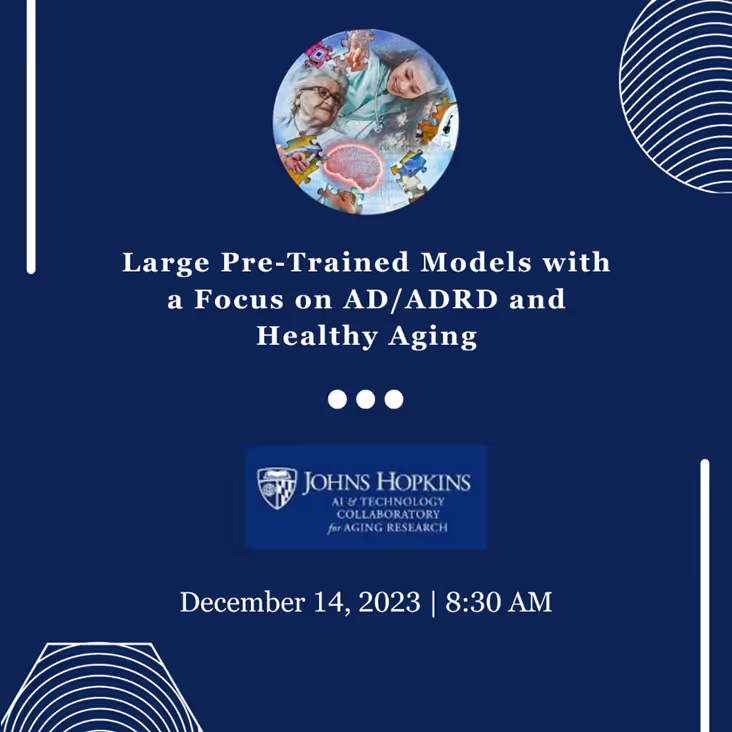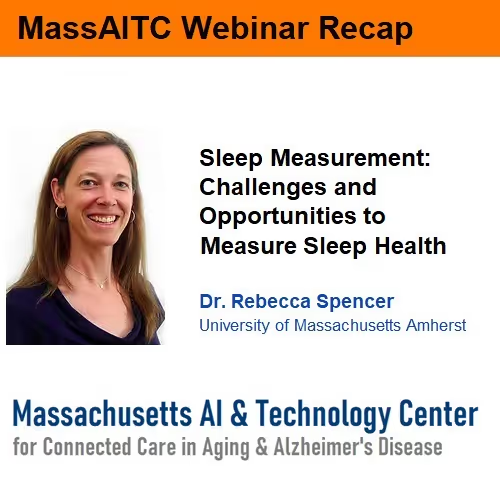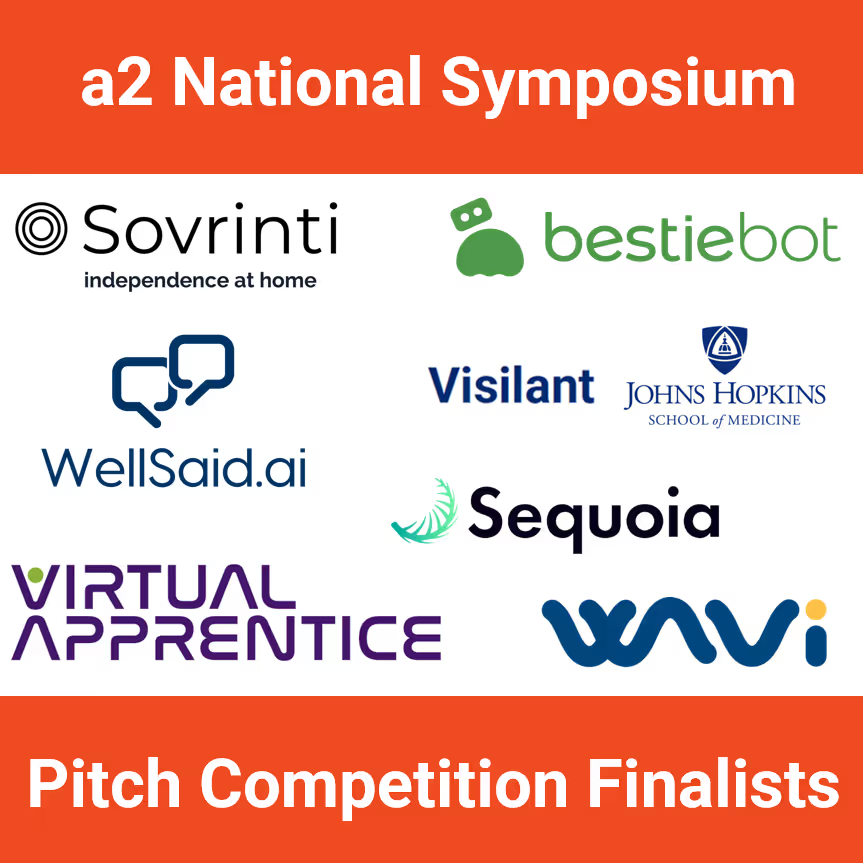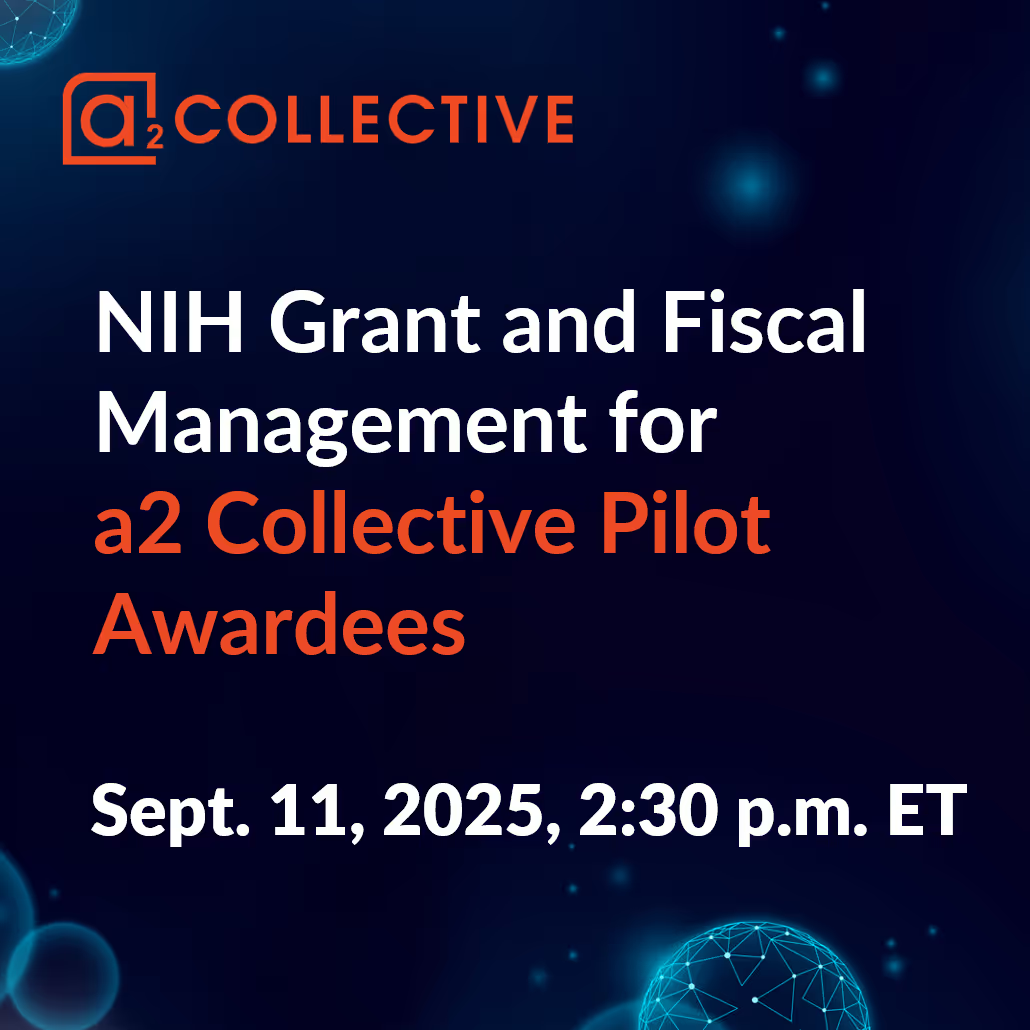Updated Aug. 27, 2024: In July 2024, The Journals of Gerontology Series A published proceedings of this event. View the article, "Enhancing Care for Older Adults and Dementia Patients With Large Language Models: Proceedings of the National Institute on Aging—Artificial Intelligence & Technology Collaboratory for Aging Research Symposium" (Abadir, et al.), here.
The landscape of medical technology is continually adapting to test, optimize, and integrate developments that can improve care and health outcomes. Recently, rapid developments in artificial intelligence (AI), particularly the emerging capabilities of generative AI, have heightened the need for cross-disciplinary collaborations that can guide the implementation of this transformative technology toward optimal benefit while anticipating and mitigating risk. With this need in mind, a selection of premier experts from the academic, technology, and healthcare sectors came together at a Dec. 14, 2023, workshop in Baltimore, MD, to discuss applications of generative AI to support healthy aging and enhance diagnosis, treatment, and care for individuals with Alzheimer's disease and related dementias (AD/ADRD).
The Large Pre-Trained Models with a Focus on AD/ADRD and Healthy Aging Workshop was organized by the Johns Hopkins AI & Technology Collaboratory for Aging Research (JH AITC), one of three Collaboratories funded as part of a $65 million grant from the National Institute on Aging to accelerate AI and emerging technology innovations with the potential to improve the lives of older adults, including individuals with AD/ADRD, and their caregivers. To date, JH AITC and Collaboratories centered at the University of Massachusetts Amherst (MassAITC) and the University of Pennsylvania (PennAITech) have collectively provided funds totaling nearly $14 million to 65 pilot projects developing novel technology solutions with applications in healthy aging and AD/ADRD.

The workshop brought together some of the technologists leading these pilot projects with national experts in computer science, engineering, and medicine to examine opportunities and risks associated with the application of large language models (LLMs) such as ChatGPT in healthcare for older adults and individuals with AD/ADRD. Featured speakers discussed potential efficiency and accuracy gains that well-trained LLMs can provide in capturing, organizing, and analyzing electronic health record data, as well as the perhaps counterintuitive insight that AI models can help humanize medical communications for patients and family caregivers. Workshop participants emphasized that sustained human oversight is critical to ensure accuracy and provide corrections that will improve model alignment over time.
Alongside optimism about the long-term benefits of leveraging LLMs in clinical practice and caregiving, speakers also expressed concern about the current dearth of appropriate standards and methods for evaluating models for medical use. Additional barriers discussed included the high resource demands required to train models; logistical gaps that may impede implementation in care and assisted living settings; and key ethical issues related to privacy, filtering, and accuracy. These considerations highlighted the need for continued collaboration among varied disciplines and stakeholders to navigate both the opportunities and challenges associated with leveraging large pre-trained models to benefit older adults and individuals with AD/ADRD.
The full agenda for the Large Pre-Trained Models with a Focus on AD/ADRD and Healthy Aging Workshop can be accessed here.




